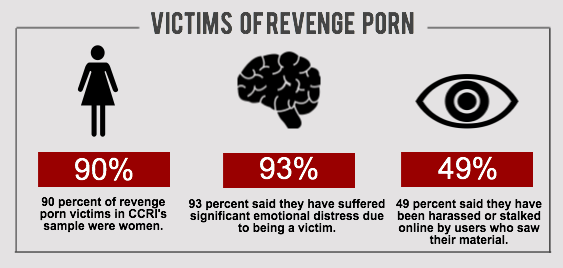
Revenge porn has become a growing concern in the digital age, where private moments can be captured and distributed without consent. This form of cyber-harassment has severe psychological and emotional consequences for its victims, often leading to depression, anxiety, and even suicidal thoughts. In response to the increasing prevalence of revenge porn, lawmakers have begun to enact legislation to protect victims and hold perpetrators accountable. This blog post will provide a detailed overview of what revenge porn is, the legal framework surrounding it, and the consequences faced by those who commit this insidious crime.
What is Revenge Porn?
Revenge porn, also known as nonconsensual pornography, is the act of distributing intimate or sexually explicit images or videos of someone without their consent. This typically involves former partners seeking vengeance after a breakup or someone attempting to blackmail or extort the victim. The term “revenge porn” can be misleading, as it implies that the motivation for sharing these images is always vengeful. In reality, the motivations behind sharing such content can range from cruelty and humiliation to financial gain or social status.
The Legal Framework:
In the United States, the first revenge porn law was enacted in 2013 in the state of New Jersey. Since then, many other states have followed suit, with California and Arizona enacting some of the most comprehensive revenge porn laws. As of 2021, 48 states in the US have enacted legislation to criminalize revenge porn, along with the District of Columbia.
The United Kingdom made revenge porn illegal under the Criminal Justice and Courts Act in 2015. Under this law, anyone found guilty of sharing intimate images without consent and with the intent to cause harm can face up to two years in prison. Similarly, other countries, such as Australia and Canada, have also enacted laws to protect victims of revenge porn.
In addition to individual countries implementing legal frameworks, international efforts are being made to combat revenge porn. The Council of Europe’s Convention on Cybercrime and the Convention on Preventing and Combatting Violence Against Women and Domestic Violence both include provisions that address online harassment, including revenge porn.
Consequences for Perpetrators:
Those found guilty of sharing revenge porn can face serious legal consequences, including prison time, fines, and potential civil lawsuits. In addition to criminal penalties, many perpetrators may experience social ramifications, such as damaged reputations or loss of employment. The consequences for engaging in revenge porn are becoming increasingly severe as more jurisdictions recognize the harm inflicted on victims and take steps to enforce stricter punishments.
Support for Victims:
Victims of revenge porn can seek help from various sources, including law enforcement, legal professionals, and support organizations. Many countries have established hotlines or online resources to report instances of revenge porn, and organizations such as the Cyber Civil Rights Initiative and the UK’s Revenge Porn Helpline offer support, advice, and resources to those affected by this crime.
Revenge porn is a heinous and invasive act that causes immense suffering for its victims. The increasing prevalence of this crime in the digital age has led to the creation of legal frameworks and support networks to protect victims and hold perpetrators accountable. As society becomes more aware of the devastating impact of revenge porn, it is essential to continue to push for stronger laws, better resources, and increased public awareness to eradicate this insidious crime.




